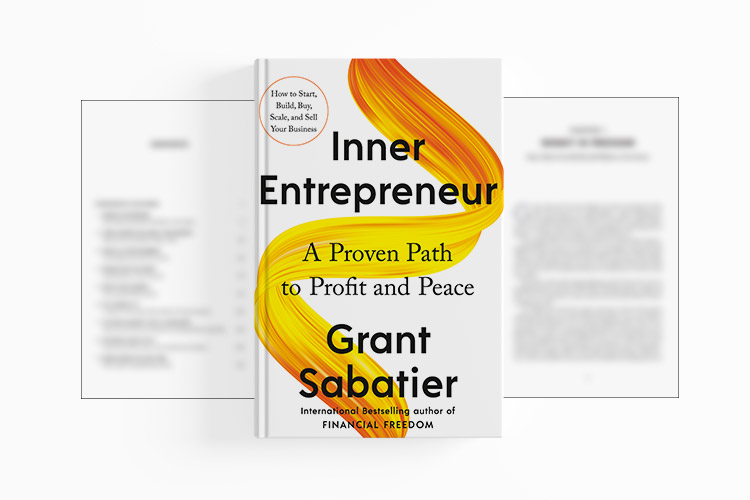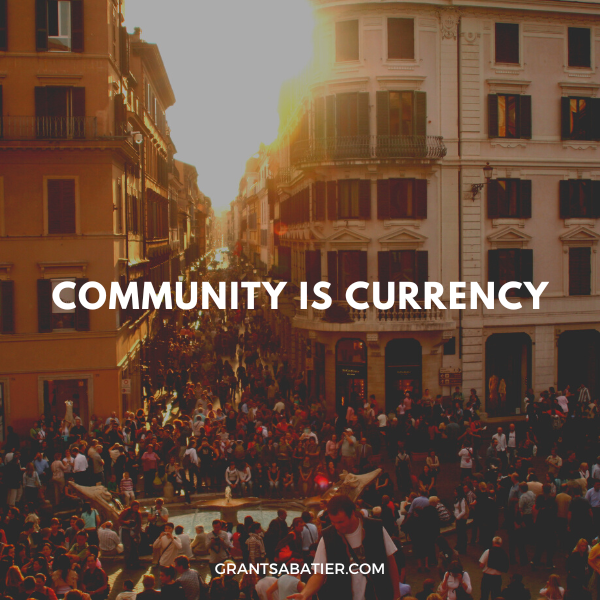As you look toward your future and set goals for the year to come—and beyond—I urge you to check in with yourself and ask, “What tradeoffs have I been making? Are they still worth it?”
If you’re reading this, you’ve probably already spent a lot of time reflecting on how much time you trade for money. Consider a third factor: how much enjoyment do you derive from spending your time and money this way?
Apply this question to all areas of your life—not just the work you do for money. Remember, time is the most precious resource. How we spend our time is the focus of our life. You have a choice.
Do you enjoy spending time with that friend from college or do you still hang out because you’re used to it? Do you enjoy going to those events you started attending five years ago or are you still trying to extract meaning from something that’s already fulfilled its purpose in your life?
Are you stuck in routines and habits? What would happen if you let them go?
Even if you haven’t yet reached financial independence, don’t be afraid to take advantage of the freedom you already have.
So many of us go through life doing things because we’re expected to, because we’re comfortable, or because we’ve always done things that way and don’t see a different approach.
Even if we aren’t content living this way—even if we know the tradeoffs we’re making aren’t worth the results—we continue on as we always have because we’re afraid of what might happen when we stop. We get stuck between the fear of failure and the fear of regret.
We become so attached to ways of doing and being that we confuse them with our identity. We wrongly assume our habits are our identity, as is so often touted now in popular self-help books. I debated with James Clear, the author of Atomic Habits, on this very topic in this podcast episode (itunes | spotify).
Who are we if we don’t have this work or this relationship? Who are we if we don’t live in this particular place or associate with this particular group? If we don’t have this job?
I get it.
When I started my path toward financial independence, I knew I’d have to make tradeoffs to get there. I knew I was going to miss out on a lot of the experiences and memories that my friends were creating. But I also knew I didn’t want to spend the next fifty years of my life trading my limited time for money. I believed the limited period of extreme tradeoffs would be worth it, and as I discussed in the last post, I ultimately decided I was right.
What I did not expect, though, was the massive emotional upheaval I experienced after I achieved my financial goals. Everyone says they want freedom, but actual freedom is terrifying because it’s limitless.
Limits give our lives structure and stability.
This is why so many people choose to accept the limits placed upon them by our society and culture; they can see where these limits lead and even if that destination is not particularly exciting or appealing, it is at least familiar.
When you let go of these limits, it’s like releasing yourself from your parachute. You’re naked in the field. Now it’s up to you to figure out what you want and who you are. What really fulfills you? What do you really want?
Many people use the new year as a time to detox. And what is a detox except for the process of eliminating the harmful and the unessential to create space for what is most essential and fulfilling? But detoxes can also be extremely painful and emotionally jarring.
For the first year after I reached FI, I felt completely ungrounded. I had spent so long in the myopic pursuit of money, working eighty-hour-plus weeks to become a millionaire by thirty, that I didn’t know where to look when I no longer had to focus.
For five years, I had known what my days would look like and where I needed to direct my energy. Now that I had eliminated the need to trade my time for money, what was I supposed to do with all of this excess energy and opportunity?
It took time, but I realized freedom only exists within limits and I had to figure out how to set my own limits to figure out what opportunities were most worth my time. The more money you make the more important it is to start setting limits in your life. The more important it is to be honest with yourself about whether you really want what you think you want and whether the tradeoffs you’re making are worth it.
Starting the process of checking in with yourself now can make this transition easier later on. This will get easier over time. At first, the further you deviate from the mean, the more uncomfortable you’ll feel. You’ll question your sanity and wonder if it’s worth it. But the more time passes, not only will you grow more comfortable, you’ll realize just how insane your old life was.
The further I get away from the traditional 9-5 corporate world, the more inhumane the entire thing feels.
I watch friends who still stress over jobs they hate in the hopes of maxing out their annual bonus or taking home $100k a year. These are friends who know my story. They know it’s possible, and they have the means to achieve FI if they want to. No matter how much I try, I can’t make them understand how expansive my life has become in the past seven years. It makes me incredibly sad to see them so stressed about their money and careers when there’s an accessible path away from that stress.
But they’re conditioned to the stress – it’s predictable, and even though it eats away at them, it’s familiar. There is so much we can’t control in our lives, so much uncertainty, so much struggle, that it’s difficult for me to understand why you would choose to stay comfortably uncomfortable. Why you’d choose to not control and leverage your relationship with money to escape and grow?
I still wonder why they’re so stuck, but I think it’s because they’re afraid of both taking the risk and the uncertainty of who they could become.
You have to trust that this process is worth it because, no matter what I or anyone else tells you, you have no idea what kind of person you will be when you emerge on the other side. You can try to predict it or control it. You can set goals. You can create five- or ten-year plans. You can try to figure out your “why.” But ultimately, you cannot control a future or a version of yourself that doesn’t exist yet.
As you head into this new year, I hope you will free yourself to imagine possibilities without clinging too tightly to them. I hope you take control of your life while embracing uncertainty. And I hope you create limits in your life that allow you to expand your experience of freedom.
This post originally appeared in my Millennial Money newsletter, which you can sign up for here.
Grant Sabatier writes about money, mindfulness, and financial independence – all with the ultimate goal of helping you build a life you love.
His story and ideas have been featured in The New York Times, Washington Post, NPR, CNBC, Business Insider, and many other places.




